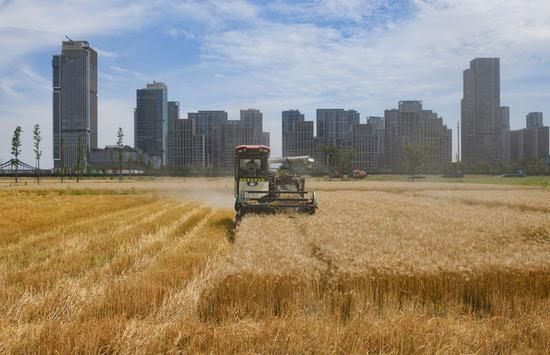China's continued construction of grain warehouses, including green facilities, brought the national grain storage capacity to over 700 million metric tons by the end of 2023, an increase of 36 percent from 2014, according to an official of the National Food and Strategic Reserves Administration.
Since the start of the 14th Five-Year Plan period (2021-2025), China has built and upgraded grain storage facilities with a total capacity in excess of 65 million tons. Key performance indicators such as airtightness and thermal insulation levels have significantly improved, said Zhou Guanhua, director of the administration's safe storage and technology department, as quoted in a report published by Science and Technology Daily on Friday.
In recent years, China has established a comprehensive grain storage system that is compatible with grain production, reserves and distribution, Zhou said, adding that China's grain storage facilities have met the country's grain purchase and storage needs in terms of overall capacity.
Outdated means of storing grain, including stack storage and open-air piles, have been largely eliminated across the country, while "four-in-one" grain storage technologies -- covering mechanical ventilation, fumigation, monitoring and cooling -- have been applied as a standard in state-owned grain warehouses, improving grain storage quality and freshness further, the official said.
China has also been promoting green grain storage technologies in its grain warehouses, covering such areas as temperature control, internal circulation and comprehensive pest control.
By the end of 2023, the total storage capacity of low-temperature and near-low-temperature grain warehouses nationwide had climbed to 200 million tons, and the comprehensive loss rate of state-owned grain warehouses remained within a reasonable range of 1 percent, Zhou said.


















































 京公网安备 11010202009201号
京公网安备 11010202009201号